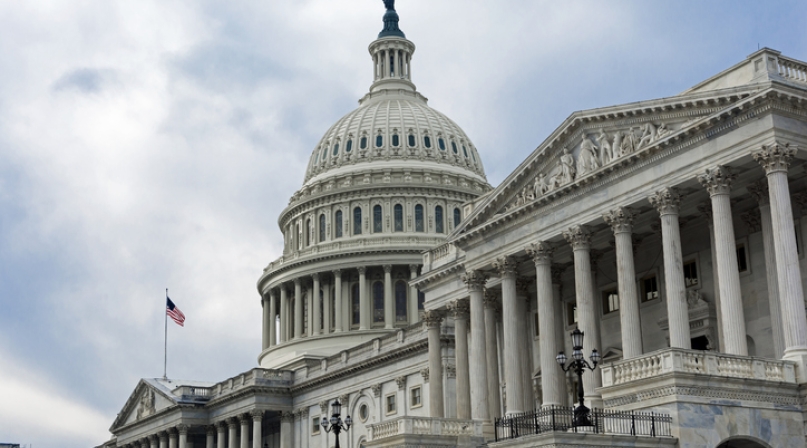Bipartisan legislation introduced in House and Senate to address Medicaid Inmate Exclusion Policy
Author

Blaire Bryant
Upcoming Events
Related News

Key Takeaways
Two bipartisan bills have recently been reintroduced in both the U.S. Senate and U.S. House of Representatives to address the Medicaid Inmate Exclusion Policy (MIEP). In March, the Due Process Continuity of Care Act (H.R.3074/S.971) was introduced by Sens. Bill Cassidy (R-La.), Jeff Merkley (D-Ore.), Thom Tillis (R-N.C.) and Ed Markey (D-Mass.) followed by the introduction in the House earlier this month by Reps. David Trone (D-Md.), Paul Tonko (D-N.Y.), Mike Turner (R-Ohio), John Rutherford (R-Fla.) and 12 other bipartisan lawmakers. The Reentry Act (H.R.2400/S.1165) was also reintroduced this past March by Sens. Tammy Baldwin (D-Wis.), Mike Braun (R-Ind.), Sherrod Brown (D-Ohio) and J.D. Vance (R-Ohio) as well as in the House by Reps. David Trone (D-Md.), Paul D. Tonko (D-N.Y.), Mike Turner (R-Ohio), John Rutherford (R-Fla.) and nine other bipartisan members.
These bills amend the MIEP, a federal statute that revokes access to federal health benefits upon arrest, by ensuring continuity of care through improved access to critical health services for individuals as they enter and exit the justice system. An overview of each bill can be found below:
- The Due Process Continuity of Care Act (H.R.3074/S.971) would allow pretrial detainees to receive Medicaid benefits at the option of the state and provide $50 million in planning grant dollars to states and localities for implementing the MIEP repeal, improving the quality of care provided in jails and enhancing the number of available providers to treat this population.
- The Reentry Act (H.R.2400/S.1165) would allow Medicaid payment for medical services furnished to an eligible incarcerated individual during the 30-day period preceding the individual’s release.
Recent federal action has reinforced the importance of continuing care coordination for incarcerated individuals with behavioral health conditions as the Fiscal Year 2023 omnibus appropriations bill included a provision to give states the option to continue Medicaid coverage for juveniles in pre-trial status. Additionally, the U.S. Department of Health and Human Services (HHS), through the Centers for Medicare and Medicaid Services (CMS), recently approved a first-of-its-kind Medicaid section 1115 demonstration amendment in California, which will connect those incarcerated in jails and prisons with community-based Medicaid providers 90 days before their release to ensure continuity of care upon return to the community. Currently, 14 states have pending section 1115 waivers to amend the MIEP for reentry.
NACo strongly endorses both bills as a critical step in addressing our nation’s mental health crisis, through better access to care. On April 26, NACo sent a joint letter with the National Sheriffs’ Association, Major Cities Chiefs Association and Major County Sheriffs of America to Congressional leadership urging Congress to pass both bipartisan bills to greatly improve care coordination in local jails and make it easier for counties to provide effective behavioral health treatment and services necessary for smooth transitions to community care, lower recidivism rates and a reduced risk of overdose post-release. Counties and local law enforcement stand ready to work with Congress to implement these important pieces of legislation.
ADDITIONAL RESOURCES
Featured Initiative
Medicaid Inmate Exclusion Policy Advocacy Center

Featured Initiative
NACo Commission on Mental Health and Wellbeing
Counties increasingly handle direct mental health services, acting as the safety net for vulnerable residents and operating crisis lines, hospitals and detention centers. NACo’s Commission on Mental Health and Wellbeing unites county leaders to address the mental health crisis through four key policy priorities.







